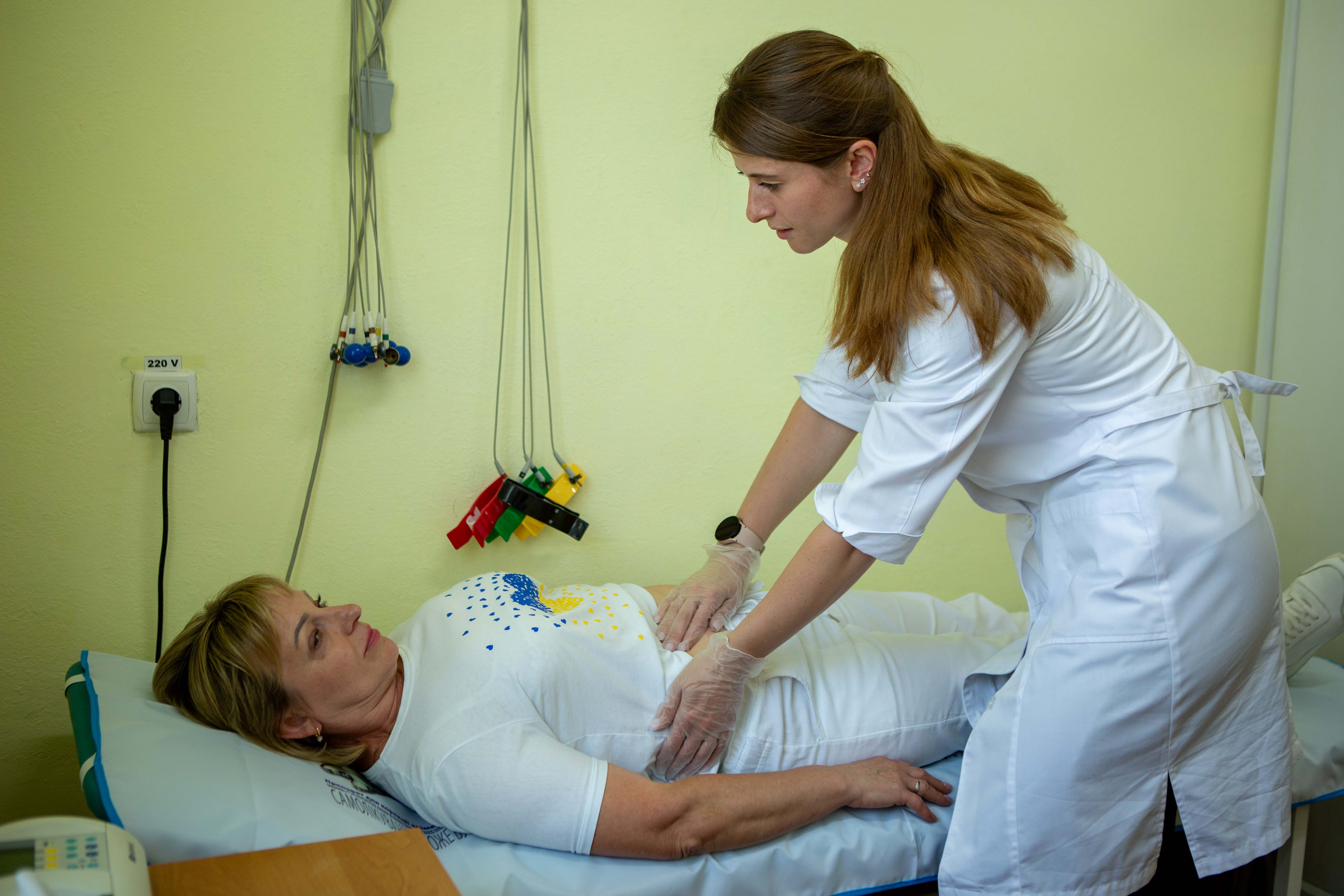Even in the most devastating conditions of war, Ukraine continues to show remarkable resilience, determined to make sure primary health care (PHC) reaches everyone and that progress towards universal health coverage (UHC) does not stop.
With support from WHO, the Government of Ukraine has responded to people’s changing health needs as a result of the conflict. Across the country – including in most rural and conflicted-affected areas – people can now access better services at PHC level.
“When we had to leave our home, I didn’t know how we would get medical care. But when I registered with a new family doctor in the host community, they saw me quickly and helped me get my medications. It made me feel like I wasn’t forgotten.”
These are the words of an internally displaced person from Luhansk, now living in Dnipro, Ukraine.
PHC is the most inclusive, equitable and cost-effective way to achieve UHC. It is also key to strengthening the resilience of health systems to prepare for, respond to, and recover from shocks and crises.
“In conflict-affected settings, primary health care plays a vital role in addressing urgent health needs, building community resilience, and laying the groundwork for long-term recovery. It forms the backbone of a functioning health system – both during and after conflict,” said Dr Jarno Habicht, WHO Representative in Ukraine.
Health consequences of war
The health consequences of war are significant for the Ukrainian population. According to a WHO war-impact survey:
59% of participating PHC providers reported an increase in mental health conditions and 63% reported an increase in cardiovascular diseases. Overall, 3.8 million people have become internally displaced and report limited access to regular PHC services for their basic needs. In addition, 39% of PHC providers that participated in the survey indicated the number of veterans registering as patients had increased significantly since 24 February 2022. Veterans have a unique profile of health needs compared with other groups of the population.
WHO, through the UHC Partnership and with the support of the Government of Canada and the European Union, has supported the Government of Ukraine to adjust the PHC financing model to account for evolving health needs during the war, implement new evidence-based approaches to financing and enhance transparency and equity in PHC budget planning.
Between 2021 and 2024, WHO through the UHC Partnership and with the support of the Government of Canada, the United Nations Joint Sustainable Development Goals Fund and the European Union supported the development of a comprehensive methodology and two nationwide studies for estimating the costs of providing PHC services for both new and existing health needs.
A methodology for change
Conducting this work during wartime posed immense challenges, yet those involved in collecting and analysing the data went to extraordinary lengths to ensure their work was completed.
“When there was no electricity, there were problems, the medical information system did not work. There was electricity for two hours after four hours of being off, so it was difficult for the doctors. They first did it on paper, then entered it into the system. Or they entered it from home,” said one PHC provider from Zhytomyr oblast in centre macro-region.
The studies allowed the Government of Ukraine to:
Understand PHC funding needs and provided evidence to advocate for increased payments. Align stakeholder perspectives on PHC financing needs, which resulted in a PHC payment increase in 2025. Adopt a detailed methodology for calculating the payment rate for PHC services, ensuring transparency for budget and payment rates setting in the future. Revise the payment design increasing funding for mental health services at PHC level and strengthening access to care in the most underserved and conflict-affected areas.
“The methodology developed from this costing study represents a powerful tool to create more transparent budget estimates for various PHC policy proposals. This evidence-based approach assists us in advocating for more appropriate funding for PHC within the general budget, allowing us to allocate resources better for expanding the PHC package and responding to the population’s health needs,” said Natalia Husak, Head of the National Health Service of Ukraine.

Dr.
Olha Karpenko performing a physical examination on Halyna Karpenko at the
Family Medicine and General Practice Outpatient Clinic. @ Aiiub Gagramanov, Kyiv.
These changes have enabled PHC providers across the country to receive financing aligned with the specific health needs of their population and which reflects the actual costs of PHC provision.
The UHC Partnership operates in over 125 countries, representing over 3 billion people. It is supported and funded by Belgium, Canada, the European Union, France, Germany, Ireland, Luxembourg, Japan, the United Kingdom of Great Britain and Northern Ireland, and WHO.
